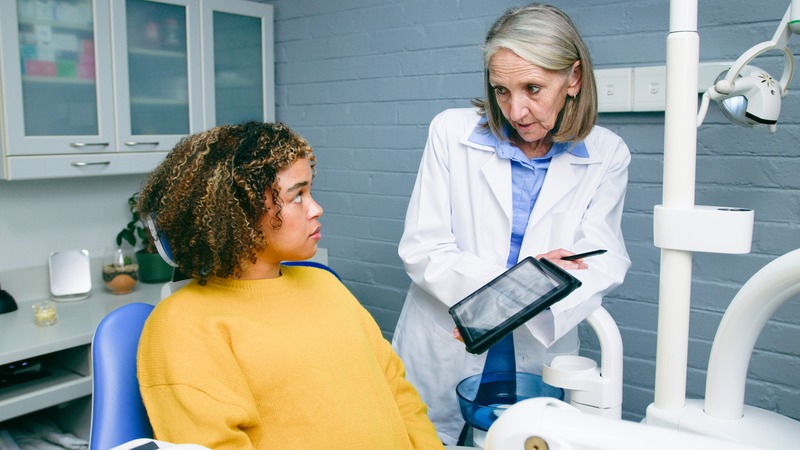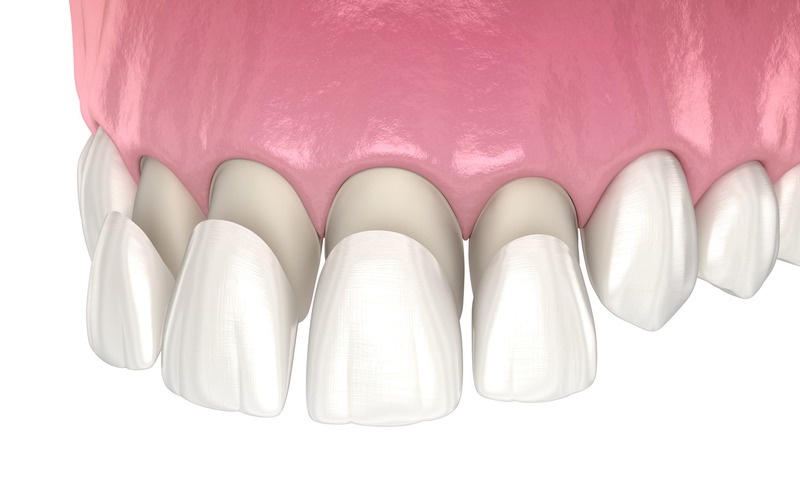Enjoying an occasional drink with friends or at celebrations can be relaxing and enjoyable. But did you know that alcoholic beverages can affect your oral health? The link between consuming alcohol and oral health problems may surprise many individuals. Let’s talk more about how alcoholic drinks can influence your oral well-being and what you can do to maintain a healthy smile.
How Does Alcohol Affect Oral Health?
Alcohol consumption can negatively affect oral health in numerous ways, including increased risk of tooth decay, gum disease, oral cancer, and dehydration of the mouth. Regular and long-term alcohol use contributes to more significant oral health issues, impacting gums, teeth, tongue, and oral tissues. These effects can range from minor discomforts to serious dental diseases, significantly affecting your quality of life.
Increased Risk of Tooth Decay
Alcoholic drinks often contain high sugar content pushing up the levels of bacteria within your mouth. Sugary alcoholic cocktails, wines, and sweet mixes leave sticky residues on teeth, encouraging bacteria growth. These bacteria produce acids that weaken the enamel, creating cavities and damaging tooth structures.
Excessive alcohol can also stunt saliva production, reducing the natural cleansing ability of your mouth. Less saliva means bacteria and sugars remain longer, potentially leading to severe tooth decay over time. Consistent sipping and frequent drinking greatly increase your cavity risk.
Alcohol Consumption and Gum Disease
Regular alcoholic beverage drinkers often have elevated plaque levels, leading to gum inflammation (gingivitis). Plaque accumulates rapidly due to sugars and acids inside alcoholic beverages, promoting harmful bacterial overgrowth in your gums. This buildup escalates the likelihood of developing severe gum diseases like periodontitis.
Chronic gum inflammation caused by alcohol consumption weakens the gum line, creating pockets of space between teeth and gums. If untreated, gum diseases can cause bone and teeth deterioration, eventually requiring surgical intervention. Regular dental check-ups are essential for early detection and management of gum diseases associated with drinking.
Higher Risk of Oral Cancer
Alcohol is one of the known risk factors linked to developing oral cancer. Drinking alcoholic beverages consistently increases your susceptibility to cancers affecting the mouth, tongue, cheek lining, palate, and throat. This risk prominently escalates with heavier consumption habits, especially when paired with tobacco use.
The carcinogenic effects of alcohol contain harmful chemicals that irritate and damage oral cell linings. Long-term irritation and cell damage gradually evolve into abnormal growth, enhancing cancerous cell formation. Lowering alcohol intake substantially decreases this serious risk.
Dryness and Dehydration of the Mouth
Alcohol acts as a diuretic, promoting water loss and causing dehydration. So, drinking alcoholic beverages can dry out your mouth significantly. Reduced saliva production dries mouth tissues, causing uncomfortable sensations like burning, discomfort, and difficulties swallowing.
A persistently dry mouth (xerostomia) makes your oral environment hostile, further diminishing saliva’s natural protective mechanism. A dry mouth accelerates cavities, oral infections, bad breath, and dental discomfort. Staying hydrated and alternating alcoholic beverages with water helps maintain moisture balance in your mouth.
Stained and Discolored Teeth
Alcohol, especially dark wines, sugary cocktails, and colored liquors, can stain and discolor teeth notably. Dark-colored drinks contain chromogens, substances that highly attach to tooth enamel, causing surface stains. Such persistent staining requires frequent brushing or professional dental cleanings to effectively eliminate.
Sometimes, regular intake results in deeper discoloration, significantly diminishing your teeth’s vibrancy and whiteness. Incorporating proper oral hygiene and scheduling frequent dental cleanings can reduce the impact and visibility of alcohol-induced staining.
Mouth Injuries and Trauma
Too many alcoholic drinks can compromise motor skills, increase accidental falls, and reduce reaction times. While intoxicated, an individual might trip easily, hit their face, or sustain oral injuries. Mouth injuries sustained while intoxicated range from broken, chipped, and fractured teeth to damaged lips and bruised gums.
Immediate treatment from dental professionals offering services like urgent dental care Markham ensures rapid recovery and reduces potential infections or complications. Seeking dental assistance after dental injuries prevents further oral health issues or unwanted tooth losses.
Alcohol and Sleep-Related Oral Health Issues
Drinking alcohol near bedtime can interrupt your normal sleep pattern, causing relaxation and collapse of throat muscles. Muscle relaxation arising from alcohol consumption exacerbates symptoms associated with sleep-disordered breathing, such as snoring or sleep apnea. These disruptions negatively impact overall sleep quality and oral health.
For individuals suffering from persistent sleep disruption related to alcohol use, considering an oral appliance for sleep apnea can be essential. These devices help keep air passages clear, significantly improving nighttime breathing and overall sleep comfort. If you’re exploring options, you might want to search online for “oral appliance for sleep apnea near me” to find local solutions tailored to your needs.
Ways to Reduce Alcohol’s Negative Effects on Oral Health
To enjoy alcohol responsibly without compromising your oral health, you can implement simpler routines and practices. Taking proactive measures significantly reduces the negative consequences alcohol has on your teeth, gums, and overall dental condition.
-
Drinking plenty of water during and after alcoholic beverages to reduce mouth dryness.
-
Using a straw for sugary or acidic drinks to limit direct contact with your teeth.
-
Choosing alcohol options lower in sugar or less acidic beverages.
-
Ensuring you brush your teeth consistently, floss, and use mouthwash regularly.
Regular Dental Visits and Alcohol Use
Consuming alcohol makes regular dental visits more essential. Dentists perform comprehensive evaluations, detecting potential issues related to alcohol consumption early. Early problem detection allows timely treatments, limiting serious oral health diseases or complications associated with alcohol consumption.
Regular dental checkups every six months provide additional support by offering specific guidance tailored to each individual’s drinking habits. Your dentist can provide practical tips to maintain excellent oral conditions and protect against potential alcohol-related dental problems.
Alcohol Consumption and Preventive Oral Care
Preventing adverse effects from alcohol on oral health starts with consistent preventive care measures. Utilizing professional preventive dental services strengthens teeth, gums, and mouth tissues against alcohol-related damage. Preventive measures, including dental cleaning treatments, fluoride applications, and personalized oral hygiene recommendations, help maintain optimal oral health despite moderate alcohol intake.
Preventive oral care reduces vulnerabilities within the mouth, making your teeth stronger and gum tissues healthier. With regular visits and preventive measures, individuals enjoy occasional alcoholic beverages without significant oral health concerns.
Final Thoughts
Alcohol affects oral health in various ways, influencing cavities, gum diseases, staining, dry mouth, oral injuries, and overall dental health conditions. Moderate drinking, responsible habits, proper oral hygiene, and routine dental visits protect your dental health effectively. Being mindful and disciplined enables you to manage alcohol consumption responsibly, ensuring your oral health remains in excellent condition.


